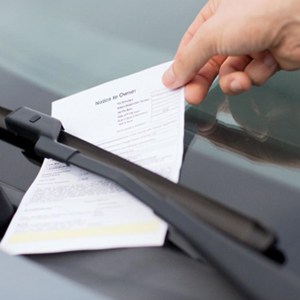Menu

People generally tend to view handling traffic violations in North Carolina as something of relatively little importance. What they fail to realize is that pleading guilty to misdemeanor driving – doing something like driving 15 MPH over the speed limit – is really pleading guilty to a misdemeanor offense, not merely a traffic violation infraction. Discover more as we discuss:
When someone is cited for a traffic violation in North Carolina, they typically have several options to address the citation. These options include:
Plead Guilty and Pay the Fine
One option is to admit guilt, pay the prescribed fine, and accept the associated consequences, such as license points.
Contest the Citation in Court
You have the right to contest the traffic citation in court. You can present your case, provide evidence, and argue your defense before a judge. Many judges use their own discretion and hear defenses, but this isn’t strictly required by law.
Negotiate a Reduction or Deal
You can also negotiate with the District Attorney’s office for a reduction in charges or penalties. This could involve reducing a speeding ticket to a lesser offense or negotiating for a more favorable outcome, for example.
The appropriate choice depends on the specific circumstances of your case, the severity of the violation, and your goals and preferences. Consulting with an attorney can help you understand your options and navigate the legal process effectively.
The decision to fight a traffic violation in North Carolina varies based on your specific circumstances, but hiring an attorney to assist you with traffic violations is generally a wise choice.
A guilty plea for a traffic violation can lead to points on your driving record, which may result in increased insurance premiums. By hiring an attorney, you may have the opportunity to negotiate for reduced charges that carry fewer or no points.
Attorneys can also negotiate with the District Attorney’s office to have charges reduced to lesser offenses. This can minimize the impact on your driving record and insurance rates. While hiring an attorney involves upfront costs, the potential savings in insurance premiums and the long-term impact on your driving record can outweigh these initial expenses.
Paying a traffic ticket in North Carolina is considered an admission of guilt. When you pay the ticket, you typically sign a waiver indicating that you acknowledge the violation and are choosing not to contest it. This admission of guilt becomes part of your driving record.
If you’ve been charged with misdemeanor driving, meaning you were caught driving at 15 MPH over the speed limit, you’re actually pleading guilty to a misdemeanor offense, not merely a traffic violation infraction. This can have more significant consequences, including potential impacts on your criminal record and driving privileges.
Generally, the primary consequences involve fines. However, specific misdemeanor traffic violations, such as DWI, may carry the potential for jail time. Offenses like careless and reckless driving or those resulting in injuries could also lead to incarceration.
In North Carolina, your driver’s license can be suspended based on the accumulation of points within a specific timeframe. The point system is used to evaluate traffic violations, and once you reach a certain number of points, your license may be suspended. Here’s a general breakdown of the point system:
The more serious the offense, the more points you’ll receive. If you accumulate 12 points within a three-year period, your license may be suspended. The duration of the suspension will depend on the specific violation, and reinstating the license often involves completing requirements such as paying fines, attending driving classes, and applying for reinstatement.
Typically, your court date will be one to one and a half months after your traffic violation is issued.
If there is an error or issue with the traffic ticket, or if the stop was not conducted lawfully, it could potentially be used as a defense in your case. Officers now use computer-based systems to issue tickets, reducing the number of errors.
In the past, handwritten tickets had mistakes often enough, such as inaccuracies in personal details, vehicle information, or citation details. If there are significant errors on the ticket, it might be possible to use them as a defense.
Law enforcement must have a lawful reason (probable cause or reasonable suspicion) to initiate a traffic stop. If you were stopped without a valid reason, it may be deemed unlawful, and any evidence obtained during the stop could be challenged. Additionally, if law enforcement deviates from proper procedures, it may provide grounds for a defense.
In both cases, the effectiveness of these defenses can depend on the specific circumstances of the traffic stop and the information available. It is essential to consult with an attorney who can review the details of your case, identify potential defenses, and provide guidance on the best course of action.
For more information on Handling Traffic Violations In North Carolina, an initial consultation is your next best step. Get the information and legal answers you are seeking by calling (252) 371-0127 today.

Our attorneys bring a wide range of legal, professional,
and personal experiences to their clients
Call Us Now
Wilson (252) 371-0127
Copyright©2025, Lusby Law P.A. All rights reserved.